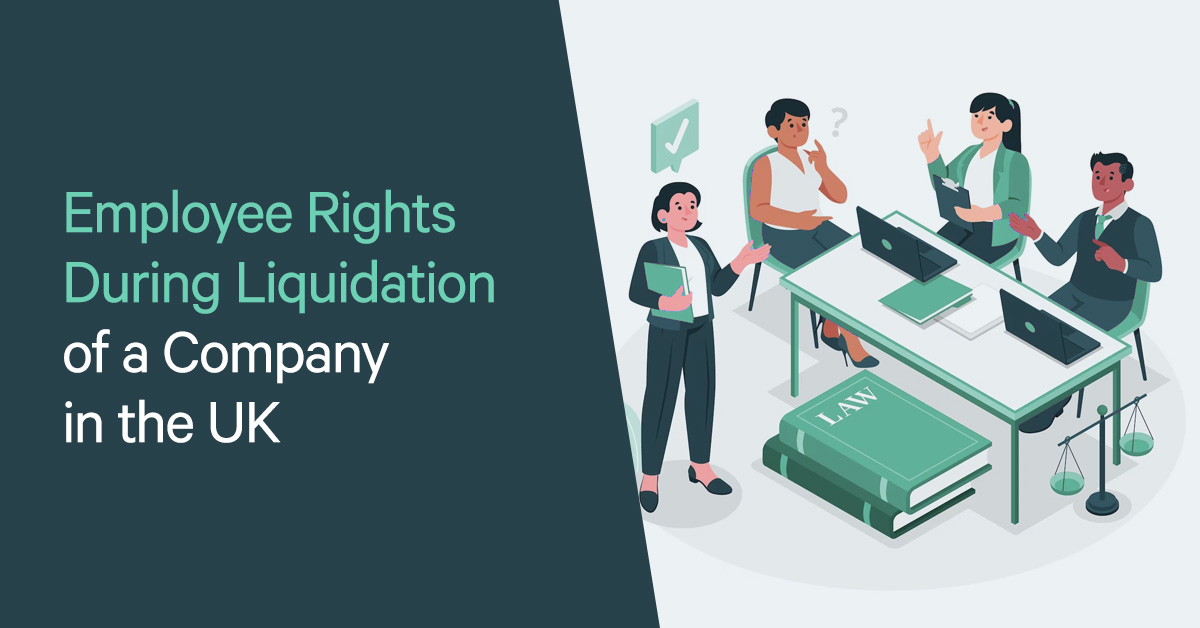If a Company Goes Into Administration, Do I Have to Pay Administration Staff? Recognizing Employee Payments in Liquidation
Wiki Article
Business Insolvency Company 7 Preswich Avenue, Leigh, WN7 1RZ 0333 567 1686
The Effect of Company Liquidation on Employee Legal Rights, Payment, and Job Security
In the realm of corporate dynamics, the dissolution of a firm due to liquidation can cast a darkness of unpredictability over the fate of its employees. As the drapes close on a business endeavor, the ramifications for worker rights, payment, and job security come to the center. The results of such a procedure can leave people grappling with numerous obstacles, varying from legal protections to economic pay. Recognizing the ins and outs of how business liquidation influences workers is vital for navigating the intricacies that occur in such circumstances (if a company goes into administration do i have to pay them).Lawful Securities for Workers
Legal Defenses for Employees make certain that employees' civil liberties are secured and supported in case of business liquidation. These protections serve as an important safeguard for staff members dealing with uncertainties as a result of their company's economic troubles. One essential protection is the Worker Modification and Retraining Notice (WARN) Act, which requires employers with over 100 staff members to offer development notice of a minimum of 60 days prior to a plant closing or mass discharge.Additionally, the Fair Labor Standards Act (FLSA) mandates that workers should receive their last paycheck without delay upon termination, consisting of any accumulated holiday time or perks. This regulation aims to avoid companies from withholding settlement owed to staff members during the liquidation process. The Staff Member Retired Life Income Protection Act (ERISA) safeguards staff members' retired life funds by setting requirements for personal pension plan plans and guaranteeing that these funds are safe and secure, even in the occasion of a company's insolvency.
Effect On Payment Plans
In the middle of business liquidation, the restructuring of settlement bundles often leads to substantial adjustments for staff members. When a company enters into liquidation, workers are confronted with the prospective loss or reduction of various components of their settlement bundles, such as benefits, profit-sharing, and stock choices. In a lot of cases, superior repayments for overtime, extra holiday days, or other advantages might additionally go to risk due to the monetary constraints faced by the firm during the liquidation process.In addition, the discontinuation of employment agreement during liquidation can result in disputes over severance pay and various other kinds of compensation that employees are qualified to under their contracts or regional labor legislations. Staff members might find themselves in a precarious scenario where they have to negotiate with liquidators or trustees to safeguard fair compensation for their years of service to the business.
Job Protection Issues
During firm liquidation, staff members commonly encounter increased job protection worries as discover this the future of their placements ends up being unpredictable. The possibility of losing their jobs because of the closure of the company can create substantial anxiousness among workers. Job protection problems during liquidation are exacerbated by the lack of clarity regarding the timeline of the procedure, prospective redundancies, and the general stability of the business.Employees might fret regarding their financial stability, occupation potential customers, and the availability of similar work opportunities out there. Unpredictability bordering the liquidation process can bring about lowered productivity, work, and morale satisfaction among staff members. Additionally, the anxiety of task loss can impact workers' mental wellness and health.
Companies are encouraged to communicate honestly and transparently with employees throughout the liquidation procedure to deal with job security concerns. Supplying regular updates, offering support services, and checking out alternative task alternatives can help ease look at here now a few of the anxiousness employees may experience throughout business liquidation. By focusing on employee wellness and preserving clear interaction, employers can alleviate the adverse impact of job security concerns during this tough duration.
Staff Member Claims and privileges

Staff members are commonly qualified to obtain unpaid wages for a specific period before the liquidation, which might vary by country. Additionally, redundancy repayments are commonly readily available to workers that are made repetitive as an outcome of the liquidation process. These repayments objective to give financial support to employees throughout the shift period to new work. It's vital for workers to understand their rights and entitlements in check this such circumstances and to seek support from appropriate authorities or lawful specialists to guarantee they get the payment they are entitled to.
Methods for Browsing Unpredictability
In times of firm liquidation, employees can utilize tactical strategies to browse via unpredictability and safeguard their legal rights and entitlements efficiently. Maintaining abreast of the liquidation procedure, understanding their legal rights under labor regulations, and seeking lawful guidance if required can empower workers to make educated choices.A critical relocation for staff members is to prioritize their financial safety. This can entail discovering choices such as making an application for overdue salaries with federal government plans, understanding the pecking order of creditors to assess the chance of getting exceptional repayments, and creating a personal spending plan to manage funds during the shift duration. In addition, upgrading resumes, enhancing skills with training programs, and actively looking for option employment can assist employees secure their future beyond the liquidated firm.

Conclusion
In verdict, firm liquidation can have considerable ramifications on employee rights, compensation, and task security. Staff member concerns about task protection and settlement bundles have to be dealt with within the legal structure to make sure fair therapy and appropriate compensation.
When a business goes right into liquidation, workers are encountered with the potential loss or reduction of numerous components of their settlement packages, such as perks, profit-sharing, and stock options.Throughout company liquidation, employees often face enhanced job protection worries as the future of their positions ends up being unpredictable. Offering regular updates, using support services, and discovering different job choices can help reduce some of the anxieties workers might experience during company liquidation.In verdict, firm liquidation can have significant implications on staff member rights, settlement, and work stability.
Report this wiki page